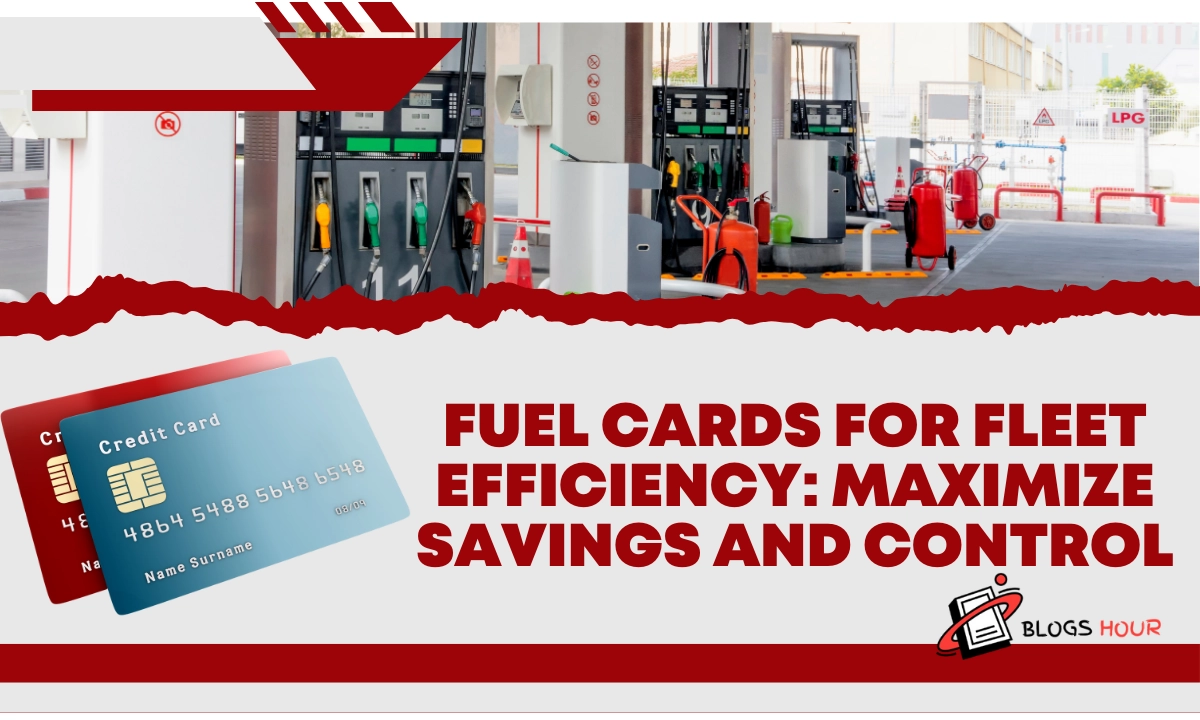Overview of Fleet Efficiency
If we implement the best Fleet Practices it can lead to a high level of operational and cost efficiency. Among these practices, fuel consumption is one of the most expensive and needs the utmost monitoring and management in every fleet. With the right fuel card in place, firms can also take proper charge of this situation and improve such administrative tasks while receiving valuable data for doing business. When it comes to fleet efficiency, it is not simply about minimizing costs but also improving performance levels, reliability of service, and a competitive edge through better management of resources.
What are Fleet Fuel Cards?
Most importantly, to achieve these efficiencies, fleet fuel cards need to be employed specifically fuel cards that are more suited to the needs of Fleet Business Management. In comparison to normal credit cards, fleet fuel cards are tailored to the particular requirements of fleet operations. They allow the purchase of fuel and other vehicle-related costs, and they structure, monitor, and control these costs around the fuel purchase. This limited function allows fleet operators to manage their fuel economy on a large scale.
The Financial Perspective
Fuel expenses can be carefully accounted for if fleet fuel cards are utilized and this will help with the financial planning processes. Fleet managers start to analyze and classify every fuelable operation enabling a more efficient resource expenditure. This information detail verifies that everything spent on fuel is planned thoroughly and it is easier to predict in the future the planned budgets for fuel. Moreover, the utilization of fuel cards can enable money and time savings – which is as valuable in the rapid general context of fleet management.
Fuel Card Security Measures
It is widely known, that for a business a daily security concern includes finances and so the fleet fuel cards have large numbers of features to secure control against abuse. Features such as individual PINs, ID of driver, and purchasing constraints are put in place to ensure that certain costs incurred are practical so that company policies consideration in the expenditure is enforced. Such security measures also protect the companies from fraud or cargo theft which is very important for fleet managers.
Completion of the Fuel Cards Management
A fuel card allows users to manage the fuel expenses of their fleet without missing out on strict reporting requirements. Simplifying bookkeeping and concentrating all fuel charges in one place contributes to effective reporting. One step further, all administrative work is streamlined while fleet managers are given an accurate picture of the amount of fuel consumed in the fleet, hence cutting down on the complexities of detailed reporting.
Statistics as the Basis for Only Optimal Decisions
By providing an intuition into the transaction histories of a fuel card it contains, managers provide themselves with the biggest advantage: insights into every aspect regarding the running expenses of a fleet. This information is indispensable, it can bring out trends and outlying data which allows for cutting costs and even better aligning fleet procedures with the overall goals of the organization.
The Effect on The Environment
So, organizations are able to get a step closer to sustainability by over-saving on fuel expenses, the fuel cards do end up providing economic assistance as well. This and promoting efficient fuel consumption directly play a significant role in the corporate sustainability efforts of an organization. Indeed, a study conducted by GreenBiz confirms how fuel cards can provide both ecologically and economically productive results to businesses.
Choosing the Right Fuel Card for Your Car
Finding the right fuel card for a fleet can be a Herculean task with a lot of options available in the market. It is prudent to perform a detailed analysis of the features offered in the card vis-a-vis the needs of the fleet, such as possessing universal around the world, customized limits for individual cardholders, and administrative services. The ideal approach for bringing in a fuel card should be also a fairly simple one, cost-efficient, and aligned with the evolution stages of the fleet in terms of geo controls.
Linkage with Fleet Management Systems
The opportunities for further rationalizing operations become even more astounding when fuel cards are linked to fleet management software systems. All transactions completed in the system are time-stamped enabling analytics and reporting to be completed in seconds therefore allowing the managers to make such decisions based on intelligence gathered. Combining financial and management information in a single location fosters a more forward management style to the management of the fleet.
Fleet Card Management and Processing in the Future
The advancement of fleet fuel cards is ongoing, and new technologies are ready to transform space even more. Developments such as drive-through payments, improved anti-fraud systems, and the charging of electric vehicles are in the future. As the scene of fleet management continues to change, it is predicted that the number of fuel cards will be more instrumental in the quest for effective and economical operations.




